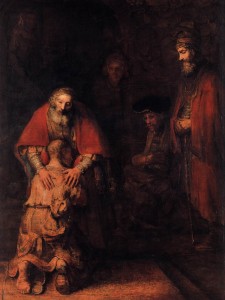Matthew 22: 15-22
This text is used for the Lectionary Year A on October 22, 2017.
 This passage marks the beginning of a series of litmus tests meant not to test Jesus’ alkalinity or acidity but his legitimacy as a leader, or lack thereof. The question about paying taxes to Rome is the first of three such litmus testing questions. The second is the Sadducees’ question about the resurrection (they didn’t even believe in the resurrection), and the third is the Pharisees question about the greatest commandment, which he answers masterfully and then follows with a fourth question of his own. We’ll get to that next week. For now, it’s important to read this as the beginning of a series of Matthean moments where we’re meant to see what Jesus is made of when confronted by and compared to the respected Jewish authorities who would later be responsible for his arrest and trial.
This passage marks the beginning of a series of litmus tests meant not to test Jesus’ alkalinity or acidity but his legitimacy as a leader, or lack thereof. The question about paying taxes to Rome is the first of three such litmus testing questions. The second is the Sadducees’ question about the resurrection (they didn’t even believe in the resurrection), and the third is the Pharisees question about the greatest commandment, which he answers masterfully and then follows with a fourth question of his own. We’ll get to that next week. For now, it’s important to read this as the beginning of a series of Matthean moments where we’re meant to see what Jesus is made of when confronted by and compared to the respected Jewish authorities who would later be responsible for his arrest and trial.
Jesus’ inquisitors indicate Jesus’ essence before even giving him a chance to answer the first question. “Teacher,” they said. “We know that you are a man of integrity and that you teach the way of God in accordance with the truth. You aren’t swayed by others because you pay no attention to who they are. (vs. 16) The disciples of the Pharisees (not the Pharisees – they first sent students to do their dirty work) do not believe Jesus is actually a person of integrity. This questioning is actually meant to reveal that and discredit him. Ironically, however, these inquisitors have both revealed their intent and set us up to observe the true integrity on display. What happens when someone confronts a person of the highest integrity with malicious intent? In this case, the person of integrity confronts them right back.
Continue reading


